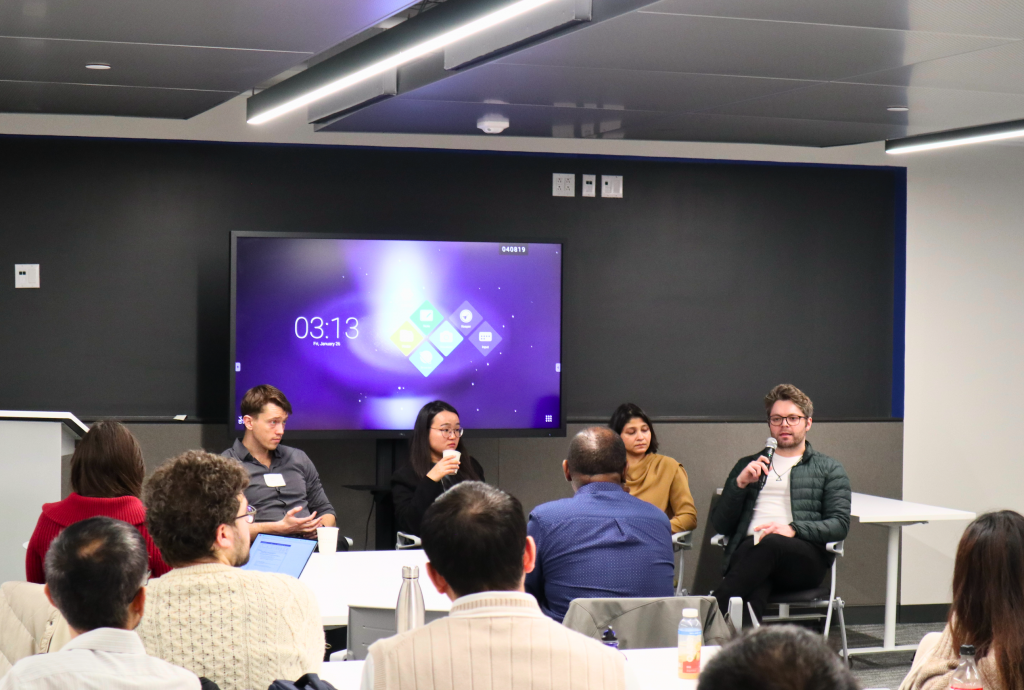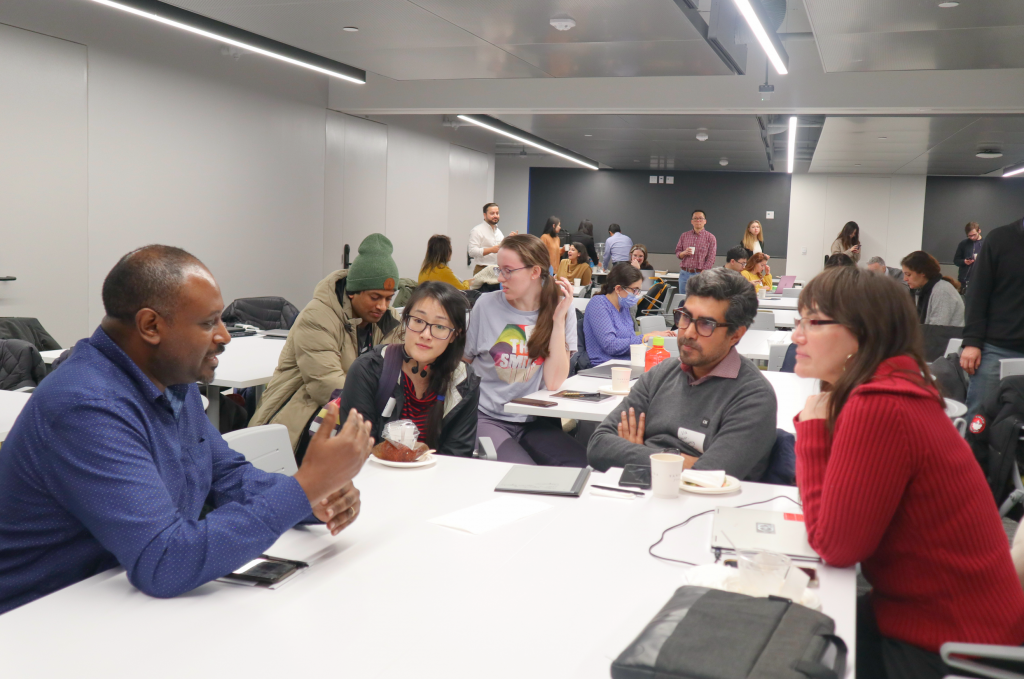by Sara Elhawash
The Data Sciences Institute (DSI) is thrilled to welcome 38 undergraduate students from across Canada for an immersive data sciences research experience through the Summer Undergraduate Data Science (SUDS) research opportunity.
SUDS Opportunities offer students the experience to apply data science methodologies and tools across diverse disciplines. Projects range from research on the robustness for machine learning models, to commercial determinants of health in online gaming, mass extinctions, nocturnal behaviour, sleep modeling, neural systems, and searching for stellar streams in the milky way. SUDS Scholars are supervised by DSI member researchers across U of T and external funding partners. Alongside their research projects, SUDS Scholars have access to a comprehensive suite of data science skills, networking events, and professional development opportunities.
The programming for SUDS Scholars commences the week of May 6 with the DSI Data Science Bootcamp, where Scholars will gain proficiency in data science skills including Unix Shell, R, Python, and machine learning.
Advika Gudi, a SUDS Scholar from U of T , expressed her excitement for the program, stating, “I’m looking forward to using data to tell a story – by identifying trends and measuring the impact of policies, to ultimately improve policy outcomes on society is incredibly motivating for me.”
Rachel Way, another SUDS Scholar, will be working with Professor Spike Lee, Rotman School of Management on the project Automated Text Analysis of Fake News and Biased News. This project aims to analyze approximately 7 million news articles from around 500 media outlets to discern differences between fake news and real news in terms of moral themes, cognitive styles, antiscience attitudes, emotional valence, and other psychological characteristics.
“The SUDS Scholar will apply automated text analysis and machine learning techniques to these articles in order to identify linguistic patterns and biases depending on how fake or real and how left-leaning or right-leaning the media outlet is,” says Professor Lee.
“I have a passion for social data science. I am fascinated by the ability to use data to answer pressing questions in the social sciences,” says Way.
The DSI’s cohort programming includes the Data Science@Work Series, where representatives from the private sector and government organizations share data science applications in the workplace. The program culminates in August with the DSI Showcase, during which SUDS Scholars present their research findings.
“Our SUDS Scholars benefit from acquiring data science expertise and professional growth opportunities. We are enthusiastic about the prospect of inspiring these students and, hopefully, launching their careers in data science,” says Professor Laura Rosella, DSI Associate Director of Education and Training.
SUDS offers students a valuable pathway to engage in high-quality and enriching data science learning, serving as stepping stone for students aspiring to build careers in data science.
See the full list of 2024 Scholars, Supervisors and research opportunities here


